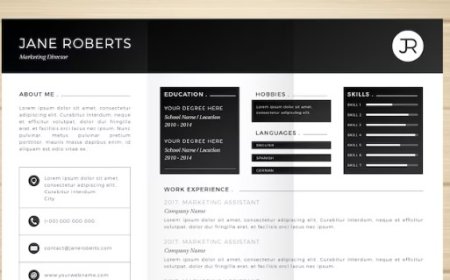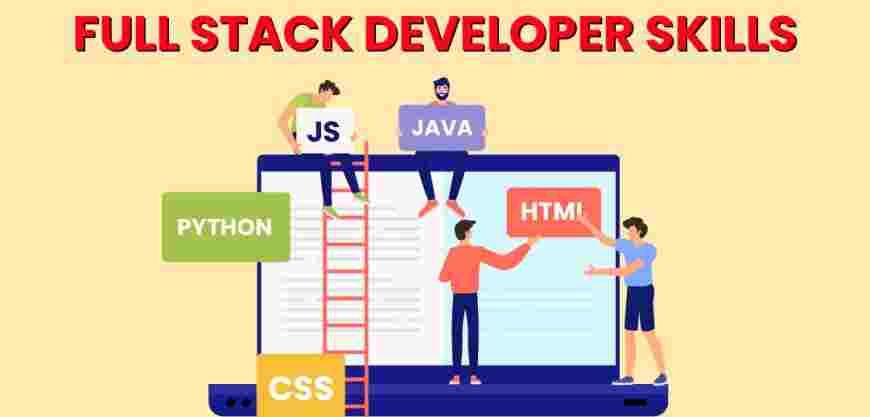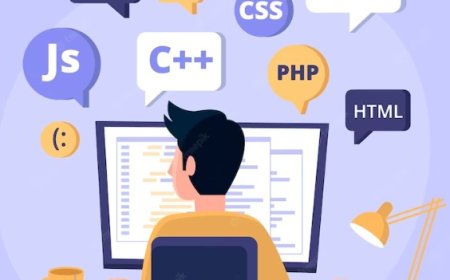The Journey to Becoming a Full Stack Developer
Unlock your potential as a full stack developer. Embark on a limitless journey of possibilities, mastering the art of coding and shaping the digital world.

In today's tech-driven world, full stack development has emerged as a highly sought-after skill set. Full stack developers possess the ability to create dynamic and interactive websites and applications from start to finish, making them indispensable assets in the software development industry. If you're intrigued by the idea of being a versatile and well-rounded developer, this blog is your guide on how to become a full stack developer.
Understanding the Role of a Full Stack Developer
To embark on this journey, it's important to understand what a full stack developer does. A full stack developer is someone who has expertise in both front-end and back-end development. They can handle the entire development process, from designing user interfaces to managing databases and server-side logic. Full stack developers are proficient in multiple programming languages, frameworks, and tools, enabling them to bring comprehensive solutions to the table.
Let's get to some Basics!
Before diving into full stack development, it's crucial to establish a strong foundation in programming concepts and web development fundamentals. Start with HTML, CSS, and JavaScript to grasp the building blocks of the web. Familiarize yourself with different data structures, algorithms, and programming paradigms. Online tutorials, coding bootcamps, and self-paced courses are excellent resources to get you started
Choose a Tech Stack
Next, it's time to choose a tech stack. A tech stack comprises the tools and technologies used in both front-end and back-end development. Popular choices include MEAN (MongoDB, Express.js, AngularJS, Node.js), MERN (MongoDB, Express.js, React.js, Node.js), and LAMP (Linux, Apache, MySQL, PHP/Python/Perl). Research and explore different tech stacks to find the one that aligns with your interests and career goals.
Mastering Front-End Development
Front-end development deals with everything users see and interact with. To become a proficient full stack developer, you should focus on learning popular front-end technologies like React, Angular, or Vue.js. These frameworks provide the tools and structure necessary to build engaging user interfaces. Additionally, understanding responsive design, accessibility, and user experience (UX) principles will greatly enhance your skill set.
Delving into Back-End Development
Back-end development is the backbone of any web application. It involves handling server-side processes, databases, and APIs. To become a competent full stack developer, you need to grasp back-end technologies such as Node.js, Django, or Ruby on Rails. Learn how to build robust APIs, work with databases (e.g., SQL or NoSQL), and understand concepts like server management and caching. Acquiring knowledge of cloud platforms, such as AWS or Azure, is also beneficial.
Relational Databases and Data Modeling
A strong understanding of databases and data modeling is crucial for full stack developers. Familiarize yourself with relational databases like MySQL or PostgreSQL, and learn how to design efficient database schemas. Understand concepts such as normalization, indexing, and querying techniques to ensure optimized data storage and retrieval.
APIs and Integrations
To create dynamic and interactive applications, you'll need to work with external services and APIs (Application Programming Interfaces). Familiarize yourself with RESTful APIs and how to integrate them into your applications. Practice making API requests, handling responses, and processing data to enhance the functionality and user experience of your projects.
Building and Deploying Applications
As a full stack developer, you should know how to bring your applications to life and make them accessible to users. Learn how to use version control systems like Git and GitHub for collaborative development. Gain experience in deploying applications on platforms like Heroku, Netlify, or AWS. Understanding containerization technologies like Docker can also be valuable in ensuring smooth deployment processes.
Version Control and Collaboration
As a full stack developer, collaborating with other developers is inevitable. Version control systems like Git play a vital role in managing codebase changes and collaborating seamlessly. Learn how to use Git and platforms like GitHub or GitLab to track your code revisions, contribute to open-source projects, and work effectively in team environments.
Embracing Continuous Learning
Technology is constantly evolving, and as a full stack developer, you need to keep pace with the latest trends and frameworks. Stay updated with industry news, follow influential developers on social media, and participate in coding communities. Be open to learning new languages, frameworks, or libraries as they emerge, and never hesitate to expand your skill set.
Developing Problem-Solving Skills
Full stack developers encounter various challenges, from debugging code to optimizing performance. Cultivate strong problem-solving skills by practicing algorithmic thinking, participating in coding challenges, and seeking solutions to real-world problems. Adopting a systematic approach to problem-solving will enhance your abilities and make you a valuable asset to any development team.
Building and Showcasing Your Projects
Put your skills into practice by building projects that showcase your expertise. Start small, tackle real-world problems, and gradually work on more complex applications. Building a portfolio of projects not only demonstrates your abilities but also serves as a tangible representation of your growth as a full stack developer. Share your work on platforms like GitHub or create a personal website to highlight your achievements.
So, by considering all of the facts, becoming a full stack developer is an exciting journey that opens up a world of opportunities in the ever-evolving field of technology. While it may seem like a daunting task at first, with the right mindset and dedication, anyone can embark on this path and succeed. Remember, learning is a continuous process, so don't be afraid to dive into new technologies and keep honing your skills.
Start by establishing a solid foundation in programming languages like HTML, CSS, and JavaScript. Familiarize yourself with both front-end and back-end development concepts to gain a holistic understanding of web development. Take advantage of the multitude of online resources, tutorials, and courses available to deepen your knowledge.
Practice, practice, practice! Building projects and working on real-world scenarios will help you gain hands-on experience and reinforce your learning. Collaborate with other developers, join coding communities, and participate in open-source projects to enhance your skills and expand your network.
Additionally, never underestimate the power of soft skills. Communication, problem-solving, and teamwork are vital in any development role. Cultivate these skills alongside your technical prowess to become a well-rounded full stack developer.
Lastly, stay up to date with the latest industry trends and technologies. The tech landscape is constantly evolving, so keeping yourself informed and adaptable is crucial. Attend conferences, join webinars, and follow industry experts to stay ahead of the curve.
Becoming a full stack developer is a journey filled with challenges and exciting breakthroughs. Embrace the learning process, stay curious, and always keep your passion for coding alive. Remember, you have the potential to become a rockstar full stack developer. So, go ahead, embark on this amazing adventure, and see where it takes you. Happy coding!





























































